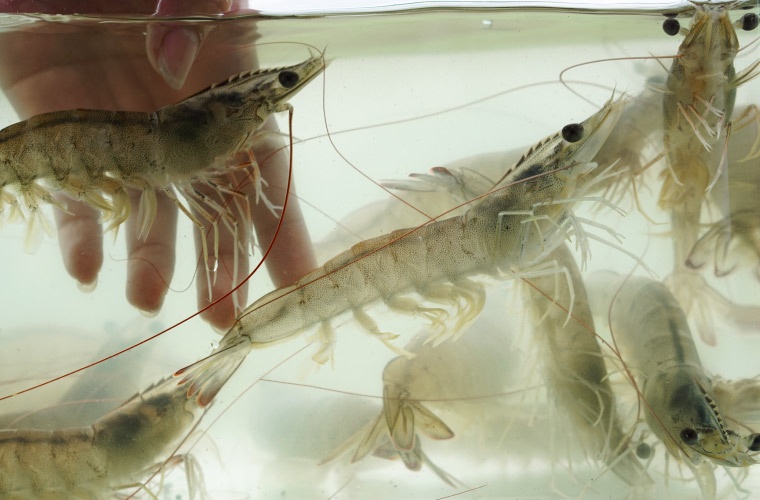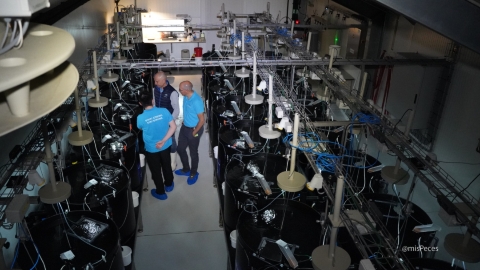
Researchers at the University of Cadiz are leading an international project that harnesses a specific strain of the microalga Chlamydomonas reinhardtii in an innovative therapeutic approach to tackle viral and bacterial pathogens affecting tropical whiteleg shrimp (Pennaeus vannamei).
The project, known as ChlamyR7, is funded by the European Regional Development Fund, under the Andalusia FEDER programme 2021-2027. It is coordinated by Dr Carlos Fajardo from the Department of Biology at the Faculty of Marine and Environmental Sciences (University of Cádiz, Spain), in collaboration with experts from CIIMAR (Universidade do Algarve, Portuagl) and University College London (UK).
The research centres on using Chlamydomonas reinhardtii as a platform to produce interference RNA (RNAi) targeted at genes in viruses and bacteria that affect shrimp health. The approach takes advantage of the TN72 strain, which enables the generation of modified organisms without the use of antibiotics as a selection method-a feature that enhances its environmental credentials.
“The first approach involves the expression of double-stranded RNA (dsRNA) in the microalga C. reinhardtii, turning it into a platform for the oral delivery of RNAi effector molecules,” the researchers explain.
The RNAi molecules are designed to silence two key shrimp genes: Rab7, which facilitates infection by viruses such as WSSV, YHV, TSV, and LSNV; and Ftz-F1H, which plays a role in the shrimp’s immune response against Vibrio parahaemolyticus. Previous studies have shown that silencing these genes reduces both viral replication and mortality associated with bacterial infections.
“The silencing of the respective target genes could produce an anti-multiviral or anti-V. parahaemolyticus effect in farmed shrimp,” the researchers note.
The project includes the development of genetically modified algal strains that produce these dsRNA molecules, along with the large-scale cultivation, harvesting, and processing of dried algal biomass for use as a feed additive. Feeding trials will be carried out on shrimp to assess the therapeutic impact, and potential risks associated with the technology will also be evaluated.
If successfully, this approach could represent a significant breakthrough in aquaculture health management, with the potential to combat, at least four of the major pathogens recognised by the World Organisation for Animal Health (WOAH).


